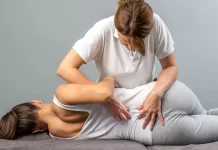If you find it hard to fall asleep and stay asleep at night, then you’re among the 33 percent of people who suffer from insomnia.
Not only does this leave you exhausted during the day, but lack of sleep can impact your concentration and safety. You may even begin to experience depression.
Sometimes your sleeping problems happen due to a health condition or medication. But you might also have some bad sleeping habits that keep you from getting enough rest.
The good news is you can take several steps during the day and at bedtime to make it easier to fall and stay asleep. Read on for a sleep hygiene checklist to begin using today!
1. Set a Bedtime and Stick to It
Do you have a crazy schedule where you go to sleep at different times each day? If so, know that your body has an internal clock that needs to stay synchronized so that you can sleep at an appropriate, expected time.
When you try to sleep at a different time each day, this throws off your internal clock and can leave you tossing and turning. Instead, go to sleep at the same time regardless of the day.
2. Limit Any Napping
When your insomnia causes you to feel tired during the day, napping for a few hours can seem like a great idea. After all, you may feel refreshed and have more energy to continue activities.
But napping for so long doesn’t help you at all with forming good sleeping habits. While short naps of 30 minutes can be good for you, sleeping longer will probably not help you fall asleep that night.
3. Watch What You Eat
Does indigestion seem to flare up right when it’s time to hit the sack? If so, your big dinner or late-night snacks might end up causing you sleeping problems.
To avoid the problem, avoid foods that are spicy, fatty, or rich in the few hours before bed. If possible, eat your dinner early to give your food time to digest.
4. Get Some Regular Exercise
If you work a desk job or sit around at home a lot, your body might not tire out enough for you to fall asleep when you want to. If you do fall asleep, your sleep quality may suffer.
Spending around 10 minutes doing aerobic exercise during the day can help you fall asleep faster. The key is to just avoid exercising intensely too close to bedtime since that might make it hard to calm down for some people.
5. Get Enough Light
Your body’s internal clock doesn’t just need a regular bedtime. Exposure to light and darkness at the right times each day plays a role in your sleep-wake cycle.
So, rather than sitting inside with your curtains closed, open up the windows to get some regular natural light. Taking a walk can both help with this issue and give you some beneficial exercise too!
6. Set up a Comfortable Sleep Environment
If your bedroom feels too hot, is too bright, or is noisy, then it’s no wonder you might have sleeping problems. For the best sleep quality, you need a space with a cool and comfortable temperature and without distractions like loud city noise.
Consider setting your thermostat to around 60 to 67 degrees and using blackout curtains to keep the space dark. You might find a white noise machine or a fan helpful for blocking out disruptive noises.
7. Make a Calming Bedtime Routine
When you have a busy life, your bedtime routine might involve just turning off the light and hitting the sack. But you can improve your sleep if you plan a calming routine that allows you to first settle down.
You can try taking a nice bath and settling into bed with a good book to get settled down. To prevent sleeping problems, you’ll want to stay away from activities that cause you to get upset or overly excited.
8. Minimize Caffeine, Alcohol, and Nicotine Use
It’s not just what you eat that can make it harder to doze off. Drinking coffee or smoking can stimulate you so that you feel more awake and can’t sleep. Drinking too much alcohol can make you feel tired but also give you insomnia.
Have your coffee and soda early in the day so that it doesn’t keep you awake at night. Avoid smoking, and if you do drink, do so in moderation and not close to bedtime.
9. Don’t Force Sleep When You’re Not Tired
Having a regular bedtime works well when you’re actually tired. But if you try to force yourself to sleep at that time or even earlier, you may waste time tossing and turning.
If you do get in bed and just can’t fall asleep, get up and do some calming activity. You might find that reading a few pages in a book or taking a light walk prepares you to doze off.
10. Avoid Gadget Use Near Bedtime
It’s so tempting to read your emails, check your social media, and watch online videos in bed. But this habit does nothing but stimulate you right when you need to settle down.
If possible, put those gadgets down at least an hour or two before bedtime. You’ll be glad you did when you fall asleep easier without the disruptive blue light these devices emit. (Viagra)
Try This Sleep Hygiene Checklist Today
With this sleep hygiene checklist in hand, you’re ready to start correcting any bad sleeping habits so that you can doze off more easily and minimize waking up during the night.
Carefully watch what you do throughout the day to avoid activities like eating or working out too close to bedtime. When you do get in bed, try not to stress about falling asleep or stare at the clock. This kind of behavior will give you anxiety that only makes sleeping harder.
Be sure to check out our other lifestyle posts for more tips about fitness and health!



















